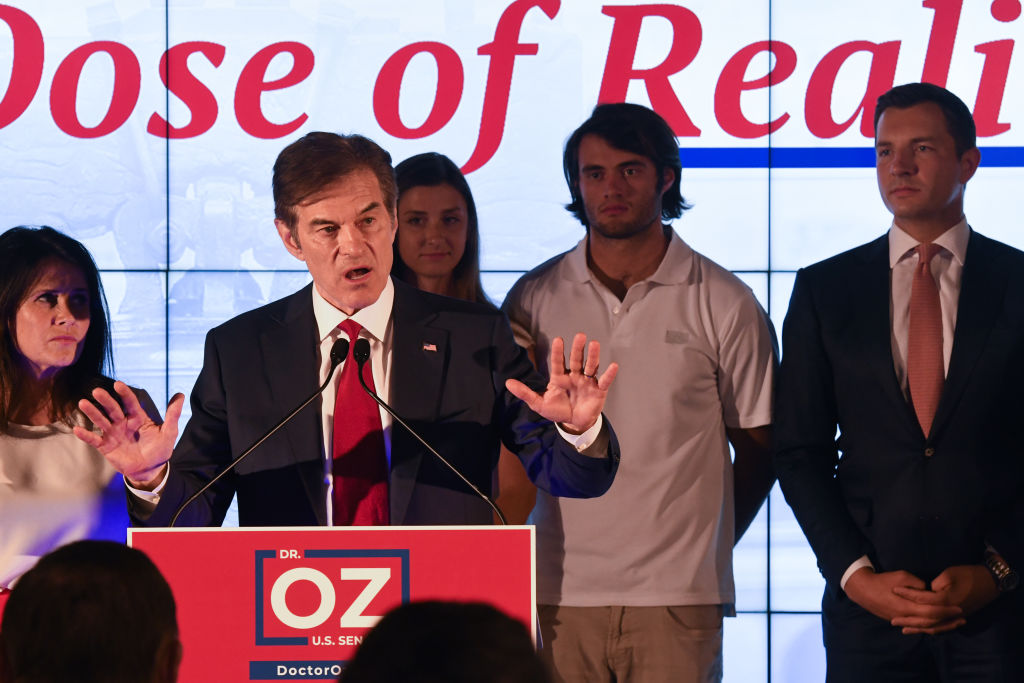The primary elections in Pennsylvania and North Carolina are in the books, and the results provide another look at how former President Donald Trump’s endorsements are working out.
Several states held primary elections on Tuesday, and the former president endorsed a slate of high-profile candidates. But the results of his endorsements show that Republican voters are willing to break with him depending on the circumstances.
North Carolina:
In the Republican primary for the Senate seat that is opening up in North Carolina due to Sen. Richard Burr’s retirement, Rep. Ted Budd, who received Trump’s endorsement, easily walked away with the nomination with nearly 59% of the vote as of Wednesday morning. Former North Carolina Gov. Pat McCrory came in a distant second with around 25% of the vote.
But that was not the only race in the state that received a lot of attention.
Scandal-plagued Rep. Madison Cawthorn was also fighting a tight primary battle.
State Rep. Chuck Edwards narrowly edged out the freshman Congressman with a margin of 1,300 votes.
Cawthorn’s defeat in the primary comes after Republicans in the state and Washington, D.C., turned on him.
Last week, Politico published a story that examined the collapse of Cawthorn’s prospects which was deeply tragic. It delved into the heavy toll the 2014 car accident that left him unable to walk took on him. The piece featured texts in which Cawthorn lamented his loss of independence, not being able to play football or enjoy activities he used to before the accident, and the pain he experienced.
While Cawthorn initially appeared to be a more moderate candidate, willing to criticize Trump and showing an apparent openness to get along with Democrats, he adopted a more partisan approach.
From the outset, he said he built his staff around communications instead of legislation, he warned of “bloodshed” while claiming the 2020 election was rigged, and he showed an utter lack of respect or dignity when he claimed on the House floor that “the only salute” President Joe Biden deserves “involves one finger.”
And most recently, he was besieged with a series of scandals, which even reportedly “weirded out” Trump so much he considered withdrawing his endorsement — in the end, he did not.
While Cawthorn’s story of his rise and fall is tragic, it’s probably for the best for the residents of North Carolina that he lost. For Trump’s endorsement record, it would have been better to withdraw his support.

Pennsylvania:
In the Keystone State, Doug Mastriano won the Republican gubernatorial primary. Trump only endorsed Mastriano — who was the leading candidate — on the Saturday before the election, so while it is a win for his record, it’s not entirely clear how much it influenced the election.
Mastriano may cause Republicans problems in their bid to flip the statehouse and hold onto retiring Sen. Pat Toomey’s (R) Senate seat. The gubernatorial nominee was seen in pictures outside the U.S. Capitol on Jan. 6, advanced Trump’s unfounded claim that the 2020 election was stolen, and spent thousands of dollars to charter buses to the nation’s capital on the day of the riot.
The primary race for Senate is still too close to call as of Wednesday morning with celebrity surgeon Mehmet Oz, who received Trump’s endorsement, narrowly leading former hedgefund manager Dave McCormick by .2%. That race is possibly headed for a recount.
While Trump endorsed Oz, conservatives — even fans of the former president — balked as they raised concerns about Oz’s conservative credentials and how he would fare in a general election.
Idaho:
In Idaho, which also held a primary Tuesday, Trump-backed Lt. Gov. Janice McGeachin lost her bid to defeat incumbent Gov. Brad Little in the primary — marking the second time this year a gubernatorial candidate with the former president’s endorsement lost.
While Trump’s backing may have helped Budd in North Carolina and Mastriano in Pennsylvania, it’s fair to say that his endorsements can’t perform miracles for candidates and have their limits — even in more conservative states.
























